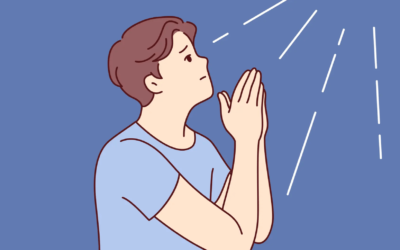The Supreme Court of Bangladesh is the highest legal authority in Bangladesh. The High Court Division and Appellate Division were established under Part VI Chapter I (article 94) of the 1972 Bangladesh Constitution.
The office encompasses the Chief Justice, Appellate Division Justices, and High Court Division Justices of Bangladesh. As of January 2024, the Appellate Division has 8 Justices, while the High Court Division has 89 Justices (78 permanent and 11 additional).
Bangladesh’s highest court oversees law, justice, and constitutional interpretation. Its influence on Bangladeshi law is huge as the highest court.
The Supreme Court of Bangladesh has an Appellate Division and a High Court Division. The High Court Division handles appeals from subordinate courts and tribunals, as well as restricted instances such writ petitions under Article 101 of the Bangladesh Constitution and company/admiralty concerns.
Article 103 of the Bangladeshi constitution gives the Appellate Division authority over High Court Division appeals.[2][3] The Supreme Court may find against the government in politically sensitive matters due to its independence from the executive branch.
The President of Bangladesh appoints the Chief Justice and other Supreme Court justices, with necessary consultation with the Prime Minister.[5]The High Court Division’s Additional Judges are appointed from the Supreme Court Bar Association’s practicing advocates and the judicial service under Article 98 of the constitution for two years.
The current appointment ratio is 80%–20%. Following completion of the tenure and approval by the Chief Justice, the President of Bangladesh appoints an Additional Judge permanently under Article 95 of the Constitution.
The Appellate Division judges are appointed by the President of Bangladesh under the same legislation. Under Article 148 of the constitution, all such appointments take effect upon oathtaking.[5]
Article 95 of Constitution (Thirteenth) Amendment Act, 2004 (Act 14 of 2004) extends Bangladesh Supreme Court judges’ terms to 67 years. When a judge retires, they cannot occupy any judicial or quasi-judicial post, nor the office of Chief Adviser or Adviser.
Article 96 of the Constitution allows the Supreme Judicial Council to dismiss a Supreme Court judge after giving the delinquent judge a chance to be heard. The supreme judicial council consists of the Chief Justice of Bangladesh and two senior judges from the Appellate Division.
If a judge is absent or unable to act due to illness or other reasons, the next senior judge in seniority will represent them. Article 94(4) of the Constitution gives supreme court justices independence.
History and Establishment
The Beginnings and Formative Years
The Supreme Court of Bangladesh was established in 1972, shortly after Bangladesh gained its independence. Since then, it has undergone major changes in order to accommodate the ever-changing requirements of the country.
Progress Through the Years
Over the course of its history, the Supreme Court has developed into a powerful institution that plays a crucial part in preserving the values of justice and ensuring that the rule of law is upheld.
Arrangement of the Supreme Court’s Organs
Court of Appeals Division
It is the responsibility of the appeal Division of the Supreme Court to act as the ultimate appeal authority in both civil and criminal matters, so ensuring that legal principles are applied as consistently as possible.
Division of the High Court
In addition to considering constitutional issues, writ petitions, and appeals from lower courts, the High Court Division is responsible for original and appellate jurisdiction.
Regulatory Authority and Powers
Jurisdiction that was first established
When it comes to issues that include disagreements between the state and people, the Supreme Court has the authority to exercise original jurisdiction, which guarantees a just and equitable conclusion.
Appellate Courts and Justices
On account of its position as the highest appellate court, the Supreme Court is responsible for hearing appeals from lesser courts. This ensures that the implementation of the law is consistent and fair.
Jurisdiction that is Advisory
The United States Supreme Court is responsible for providing advisory opinions on topics of public interest or constitutional interpretation. These opinions serve to guide both the government and the people.
Function in the Maintenance of the Constitution
In the process of interpreting and protecting the Constitution, the Supreme Court plays a significant role in assuring the preservation of basic rights and democratic ideals.
Important Choices to Make
Over the course of its history, the Supreme Court has issued a number of major decisions that have had a significant impact on the development of legal precedents and the norms that govern society.
Obstacles and Criticisms to Consider
In spite of the supreme importance of its job, the Supreme Court is confronted with a number of obstacles, including a backlog of cases, delays in the delivery of justice, and charges of corruption, which calls for changes.
Reforms and Efforts to Implement Modernization
The Supreme Court is now undergoing a process of modernization, which includes the digitalization of documents, the growth of capacity, and the implementation of procedural changes to improve both efficiency and transparency.
In the context of Bangladesh’s legal system, significance
The judgments made by the Supreme Court have far-reaching significance, since they establish precedents in the law and significantly influence the course that the legal system of the nation will take.
The Supreme Court in Comparison to Other Courts
In contrast to other supreme courts throughout the globe, the Supreme Court of Bangladesh has distinctive qualities that are a direct result of the socio-political environment of the nation.
Recognition and Influence on a Global Scale to Consider
The rulings of the Supreme Court are often quoted elsewhere in the world, which is a reflection of the court’s impact and recognition on the worldwide scene.
What the Future Holds
The Supreme Court is positioned to significantly expand its role in the administration of justice and the maintenance of the rule of law as a result of ongoing reforms and modernization initiatives.
Contribution to the Field of Legal Education and Practice
Judgements handed down by the Supreme Court of Bangladesh are very useful learning tools that contribute to the advancement of legal education and professional growth, hence enhancing the legal discourse in Bangladesh.
Trust and Perception in the Public Eye
Maintaining the confidence of the general public is of the utmost importance for the Supreme Court, which necessitates openness, accountability, and a response to the requirements and expectations of society.
Final Thoughts
To summarize, the Supreme Court of Bangladesh serves as a cornerstone of the judicial system, assuring the continuation of the rule of law and preserving the ideals of the constitution. The organization continues to be dedicated to administering justice and protecting the rights of all residents, despite the problems that it faces.



